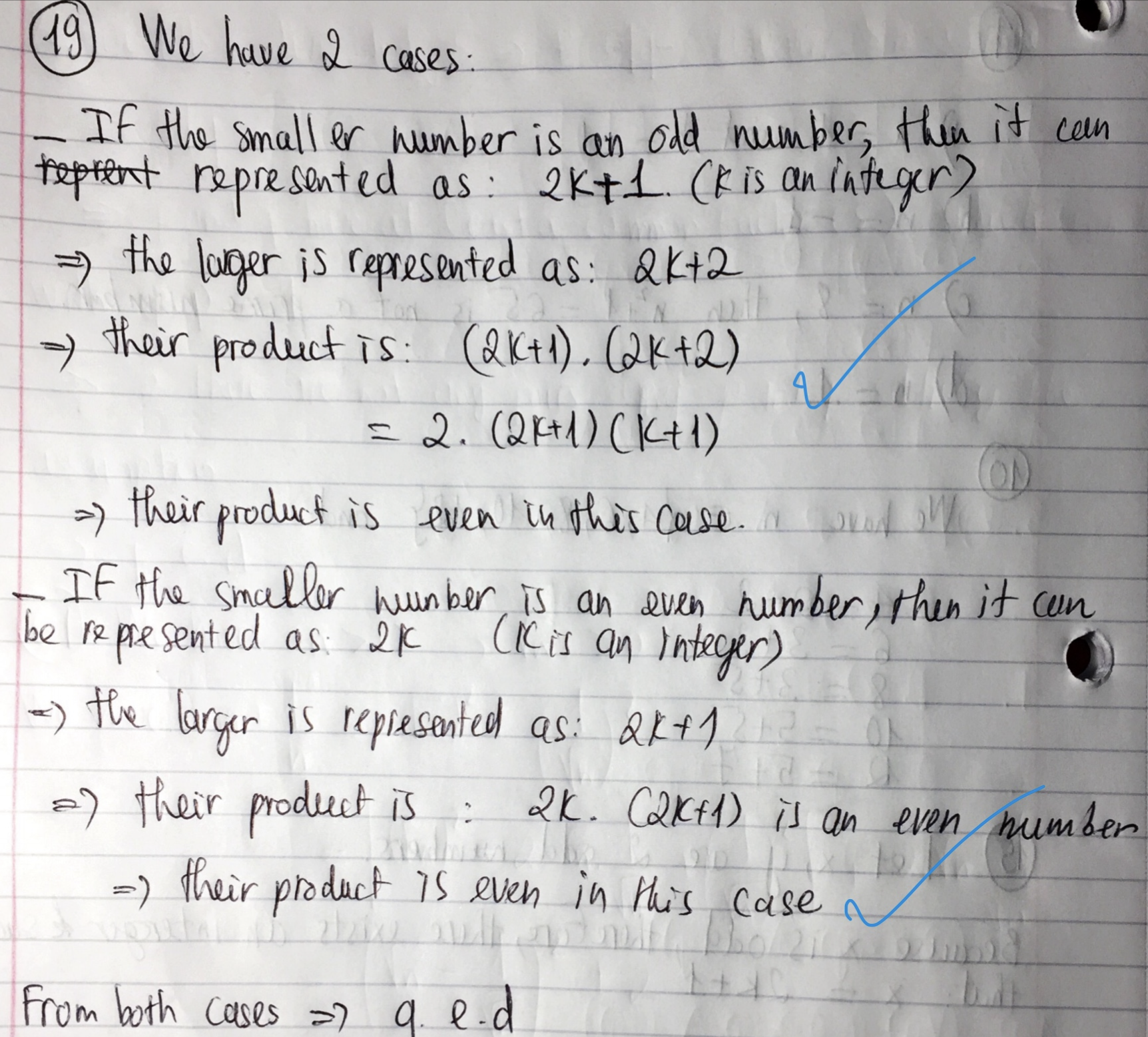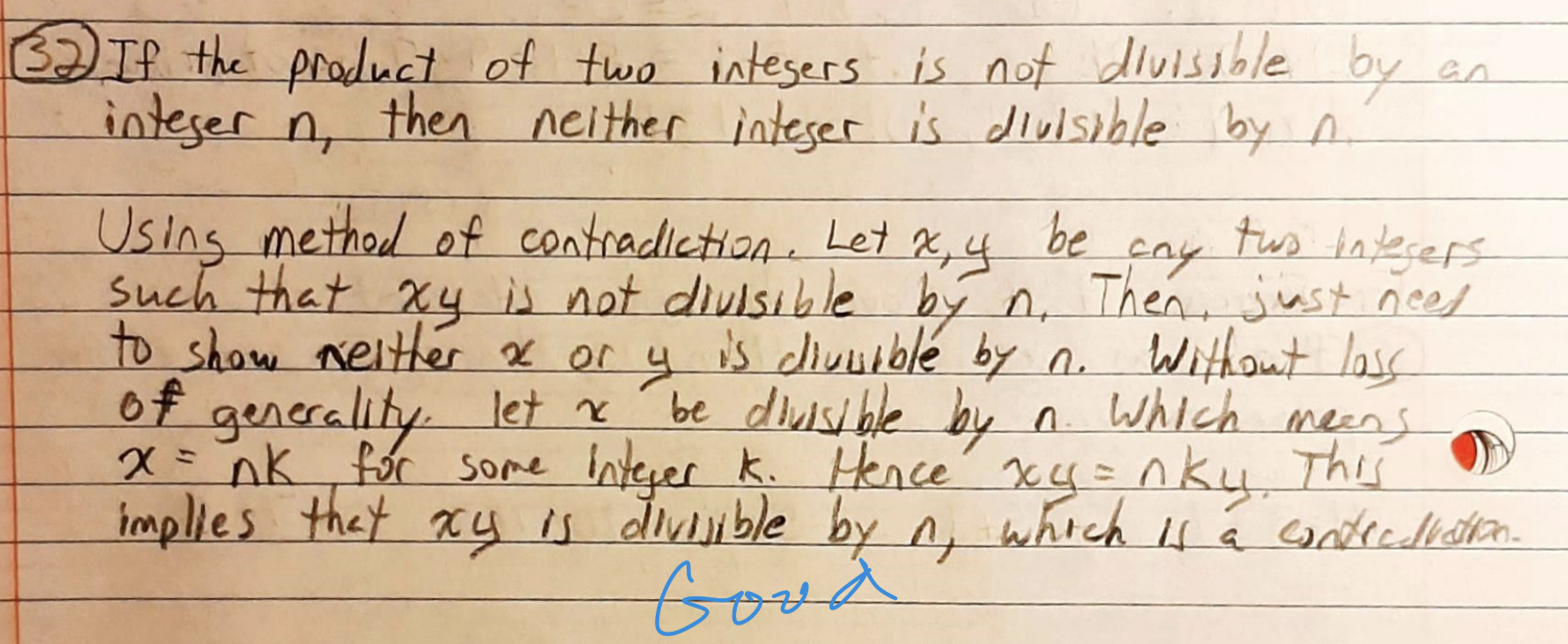- Our first exam is coming up Thursday. It will cover through
2.1. That's five sections, and it will be balanced across
them. Imagine about 15 minutes per section.
- Here are some
first exams from years past.
-
- The Zooms continue
- A menu of our past zooms...
- Graded 19, 32, and 71 in assignment 1.2:
- 19: sometimes the result seem so obvious that you
wonder what to do! But can we say
"2 consecutive integers are either odd and even or even and odd." Has that been proven? Is that a rule? It's easy enough to prove (a lot of these things are); but can we invoke it in a proof sequence?
Many of you assumed that consecutive integers are one even, and one odd; I assumed that every integer is either even or odd (is that a theorem?). What theorems may we use, or rely on?
In reality, we start with very few axioms, and some inference rules, and then begin developing theorems. Peano's axioms are the base of the number system.
One of the hardest questions is "what's allowed?"
Christian invoked a previous exercise (#15) -- good work!
Here's Kyle's direct proof, with cases:

- 32: Nathan did a direct proof, using the prime
factors of integers. Ryan and Kyle did nice
contradiction proofs (slick! slicker than what I
did). I (and many others) proved it by
contraposition. If you do a contraposition proof, then
you need to state the contraposition. Many of you
turned an "and" into an "and", when it should have been
an "or".
Here's Ryan's proof:

- 71: Just choose a nice counterexample to show that it's false. You were handed a nice suggestion in #44.
- My work
- 19: sometimes the result seem so obvious that you
wonder what to do! But can we say
- We finished off Section 2.1, and then hit highlight worksheet
2.2.
- Lewis Carroll -- I might throw one of these at you; we spent some time on it. If I do it will be an easy one!
- Section 1.1
- Section 1.2
- Section 1.3
- Section 1.4
- Section 2.1
- Cayley's 1879 Note on the Four Color Problem:
On the Colouring of Maps Author(s): Professor Cayley Source: Proceedings of the Royal Geographical Society and Monthly Record of Geography, New Monthly Series, Vol. 1, No. 4 (Apr., 1879), pp. 259-261